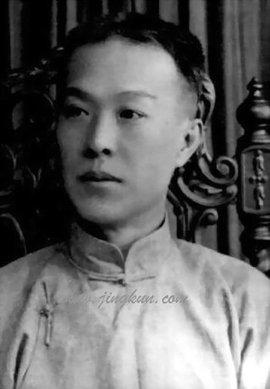Gao Qingkui (1890-1942), formerly known as Zhenshan (Zhenshan), was a zijun. Famous Peking Opera Laosheng performance artist, founder of Peking Opera Gaopai Laosheng Art, one of the "Four Great Susheng" of Peking Opera. Gao Qingkui was originally from Yuci, Shanxi, and was born in Beijing. His father, Gao Sibao (Shi Jie), was a famous clown actor in Peking Opera in the late Qing Dynasty. In the 1930s, Gao Qingkui, Yu Shuyan and Ma Lianliang were known as the "Three Sages" of Lao sheng.

Gao Qingkui's old student sang the Chuzong Tan Sect. After his voice recovered, it was more sweet and crisp, wide and bright, high-pitched and agitated, and rich in timbre. Subsequently, he also absorbed the singing characteristics of Sun Juxian and Liu Hongsheng, and borrowed the singing methods of Lao Dan Gong Yunfu and Flower Face Qiu Guixian, integrated and innovated, forming a unique artistic style, known as "Gao Pai".
Some people think that the "high school" founded by Gao Qingkui is to adjust to the high door, which is a misreading. In addition to the high-pitched excitement of singing art, Gaopai art also lies in the ability to play several roles in different professions such as Wusheng, Hua Face, and Lao Dan. His singing is full of energy, in one breath, especially good at using the atmospheric mouth, with a long cavity dragging board singing method to express the feelings of the characters, in order to seek the artistic effect of vocal affection. His recitation was sonorous and powerful, and the setbacks were caused; The workmanship is profound and meticulous, and the expression is good. His chanting is mostly in kyoji kyoji.